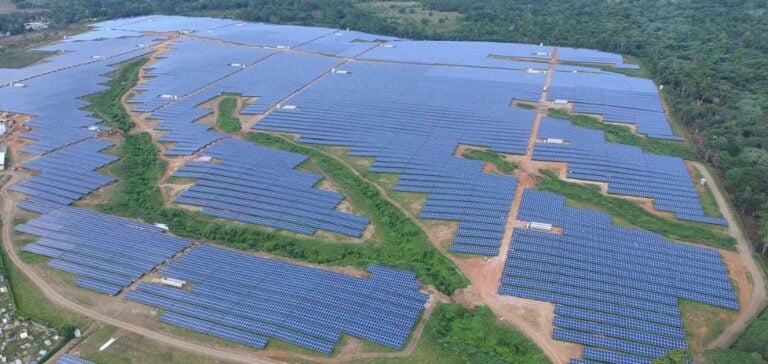The energy transition in the Dominican Republic is gathering pace under the current government. In three years, electricity generation capacity from renewable sources has risen from 555.5 MW to 1,126.25 MW, an increase of over 103%. This development has been mainly fuelled by a series of reforms and strategic investments in photovoltaic projects, currently under construction for a total of over 1,300 MW spread across various regions of the country.
President Luis Abinader played a crucial role in promulgating Decree 65-23, which updates the regulations relating to the Renewable Energy Promotion Act (Ley 57-07). This decree aims to increase transparency and reduce bureaucracy in renewable energy contracting processes, thus attracting massive local and foreign investment. In 2023, these investments reached 1,071 million dollars, putting the energy sector at the top of the national economy alongside tourism.
International rankings and recognition
According to the Climatescope 2023 report by Bloomberg New Energy Finance (BNEF), the Dominican Republic has climbed from 45th to 43rd place worldwide in terms of attractiveness for foreign investment in the energy transition. Among emerging markets, the country moved up from 22nd to 20th place out of 110 nations, and regionally, from 7th to 6th place in Latin America and the Caribbean. This improvement reflects significant progress in the social, political, economic and environmental fields.
International organizations such as the Latin American Energy Organization (Olade) and the International Renewable Energy Agency (Irena) have recognized this progress. In 2023, the World Economic Forum ranked the Dominican Republic 88th in its global energy transition ranking, with a score of 50.7, the country’s best ranking in nine years.
Strategic Partnerships and International Cooperation
The Ministry of Energy and Mines, headed by Antonio Almonte, is committed to enhanced international cooperation to improve the country’s image and coordinate collaborations in strategic energy fields. Recently, Minister Almonte was invited by the European Union to explore avenues of collaboration through initiatives such as Global Gateway and the Euroclima program. In addition, the Dominican Republic has joined the Powering Past Coal Alliance, paving the way for climate financing led by the UK and Canada.
The country has also been selected as one of four pilot projects for the Energy Transition Accelerator (ETA), a financial platform supported by the United States in collaboration with the Bezos and Rockefeller foundations. The reforms and investments undertaken aim to make the power system more reliable, affordable and resilient. The energy transition in the Dominican Republic is not only an economic transformation, but also a commitment to future generations, influencing the country’s perception on the international stage.






















